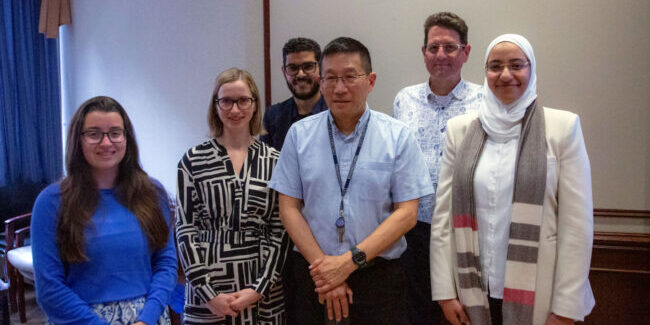Medical doctors learn in immersive teaching hospitals — and now U of T Engineering students will have their own immersive learning opportunities within a real-life teaching city. Later this year, the City of Oshawa will become Canada’s first-ever living laboratory for urban research, allowing students to probe complex municipal issues and test practical solutions for the future.
The University of Toronto’s Faculty of Applied Science & Engineering is teaming up with the Canadian Urban Institute, the University of Ontario Institute of Technology, Durham College and the City of Oshawa to realize this first-of-its-kind partnership. As a ‘teaching municipality,’ Oshawa will connect engineering students with city staff, testing new technologies and methods on the ground and in real time.
“This is a new era for engineering education,” says Professor Brent Sleep, chair of the Department of Civil Engineering. “With this innovative partnership, through internships and research opportunities U of T Engineering students, including students in the Master of Engineering in Cities Engineering and Management (MCEM) program, will study and resolve real-life problems in today’s urban setting.”
A memorandum of understanding between the partners was signed June 5, 2017 at the Arts Resource Centre in downtown Oshawa. The coalition continues to invite participation from a variety of industry partners, which will expand the potential application areas for innovations studied in the city, including market-focused solutions for commercialization.
Moving beyond textbooks and laboratories, this dynamic urban lab will bring students and researchers closer to emerging trends. Potential areas for exploration could extend from current U of T studies in intelligent transportation systems, sustainable urban infrastructure including air pollution and health, drinking water systems and building sciences. The partnership will also seek to deepen evidence-based policy development and research-driven innovations from U of T MCEM students.
“Access to real-time urban data and systems will provide significant insights and transformative opportunities to assess problems and identify scalable and sustainable solutions for tomorrow,” says Sleep. “Learning outside lecture halls encourages students to interact with a multitude of stakeholders, learning to support and interact with policymakers, residents and their future colleagues.”
As urbanization intensifies the pressure on cities — from increased demand on utilities, to greater need for emergency services and schools, to urgent need for traffic and transit upgrades — a new generation of highly trained engineering talent will guide and manage new technologies, policies and practices to meet the needs of citizens across Canada and around the globe. The first student cohort will begin studying this experiential teaching municipality in 2018.




